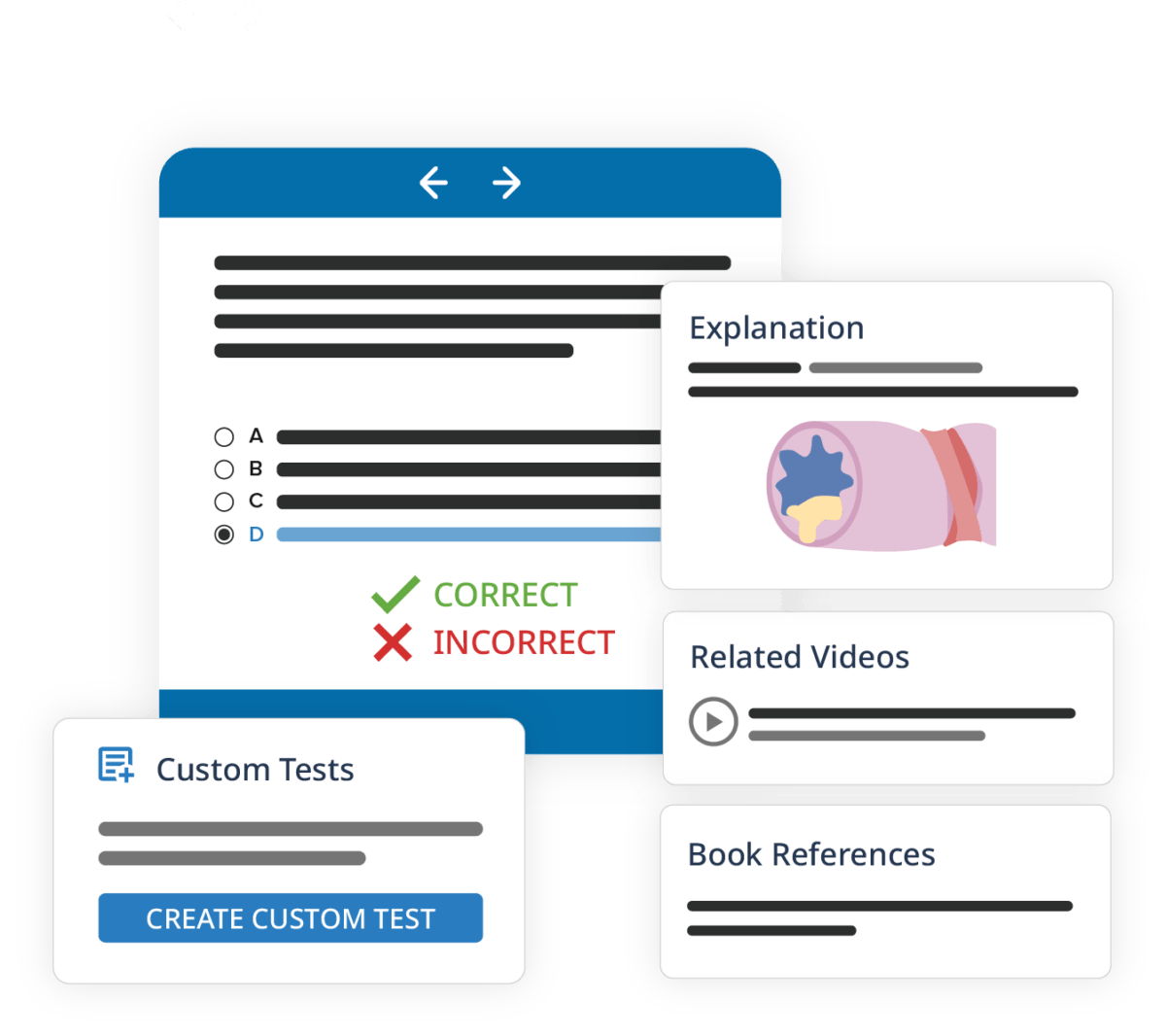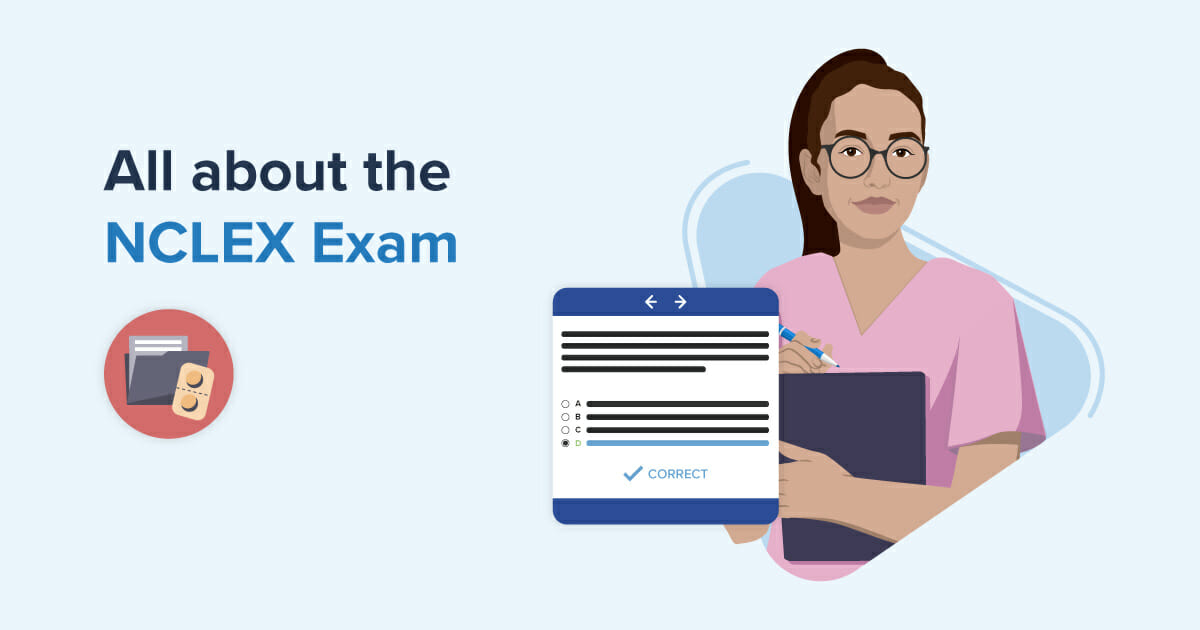This test is a culmination of all the knowledge you’ve gained during nursing school and grants nursing school graduates licensure to their respective state boards of nursing. There is no shame in not passing the NCLEX®. Not everyone does right away.
The important thing is to know what you should do if you fail, how to regroup, and how to prepare for success on your next attempt.
So, Really, What Happens After Failing the NCLEX®?
If you’ve failed the NCLEX®, a few things need to be done before retaking it. Always follow up with your state’s nursing boards to determine the proper next steps.
Give yourself time to wallow
The first thing that happens is that you feel really sad — maybe even angry or disappointed. It’s normal, and it’s okay. Be kind and show yourself grace with the understanding that many nurses do not pass on their first, second, or even third attempts. Whether it takes one try or three, when all is said and done, you will have the same RN credentials after your name as the nurse who passed on the first try after 75 questions.
Find out what went wrong
The next thing that happens is you will receive CPR. No, not resuscitation — but a document called the NCLEX® Candidate Performance Report. The CPR tells you precisely what you need to improve upon for your next go-around, and it will guide you in the areas you will want to focus on when you dig in your heels and commit to passing the NCLEX®.
Give it another shot
Once you’re done wallowing, get yourself together and review the CPR. Once you’ve committed to retaking the NCLEX®, don’t procrastinate. You will need to wait 45 days between exam attempts, so schedule your next attempt ASAP!
Contact the state board of nursing and notify them that you’d like to retake the exam. Of course, you’ll have to send them more money and resubmit specific documents. Once you receive your new ATT (Authorization to Test), you can choose a new date for the NCLEX®. Then, focus on the areas you need to improve upon and get to studying.

Related videos
How Many Times Can You Take the NCLEX®?
You will need to contact your state board of nursing to determine how many times you can take the NCLEX® in one year. Whether you pass on the first attempt or not, the credentials after your name do not change. No one will know how many times it took you to pass unless you tell them. It doesn’t make you a better nurse to pass right away or after a few times (or more).
Keep in mind that the NCLEX® is designed to be difficult. Being a nurse is serious business, and your state wants to ensure that only folks who are safe to practice are actually licensed. Unfortunately, this makes it difficult for those of us who are not naturally good test-takers. Don’t despair or feel like you aren’t good enough. You are good enough and always have been. If you can graduate from nursing school, you have the aptitude to pass the NCLEX®. It will happen with the proper preparation, focus, and determination.
How Many People Fail the NCLEX®?
According to the National Council of State Boards of Nursing (NCSBN), approximately 80% of first-time RN candidates passed the NCLEX® in 2022. Of those who repeated the test in 2022 after failing one or more times prior, about 45% passed.
These statistics may feel daunting, but they signal that you aren’t the only person who failed the NCLEX®. Not everyone is a great test-taker; some buckle under the pressure of a high-stakes exam. Whatever the barrier was for you, don’t give up. Keep on pushing, and don’t stop until you pass.
What is the NCLEX® Passing Score?
The NCLEX® passing score is not a defined number. Instead, the NCSBN has adopted a computerized testing method that feeds candidates questions based on their ability to answer easy or difficult questions. It then analyzes these results to produce a pass-or-fail determination.
The minimum number of questions you will see on the NCLEX® is 75. This is why we hear our friends and classmates celebrate when they were only given 75 or 80 questions. This indicates that the questions they received were of greater difficulty, and the test-taker answered most, or maybe all, of them correctly.
If they were not answered correctly, the computer would have continued to feed them easier questions, and their question count would have gone up rather than the test ending.
The maximum number of questions on your NCLEX® is 145. If you get all 145 questions, this means that the more difficult questions may not have been answered correctly, and so the computer automatically gave you easier questions, which means that you had to answer more correctly to pass.
My Experience with the NCLEX®
I took the NCLEX® in 2011. Yes, I am old. I remember being extremely nervous and could feel my heart racing when I took my seat in the testing center and prepared to start the exam. I only kept thinking, “you know everything you’re supposed to know.” Over and over, I repeated this.
“You know everything you’re supposed to know!”
There were certainly questions that I did not know the answers to, so I guessed. I felt more comfortable with some questions than others. I just reminded myself to pick the “most correct answer” and keep moving forward.
I ended up passing after 176 questions. Back then, the maximum was 265. I was happy that I passed.
There were a few classmates who did not. They retook the NCLEX® later on and have been happily working as RNs for at least a decade now. If you relate more to their story than mine, you will make it there too.
If You Fail the NCLEX®: Final Thoughts
Nursing school is easy, said no one ever. So give yourself the credit you deserve for successfully graduating from one of the most rigorous academic programs available as an undergraduate. Even though failing the NCLEX® is disappointing and upsetting, you still have the opportunity to regroup and retake the test after additional preparation and study time.
Pay special attention to the CPR you will receive from the NCSBN after an unsuccessful NCLEX® attempt. It provides guidance on the areas that need improvement and what you did well on.
Notify your state nursing board that you intend to retake the test and pay the additional fees.
But, most importantly, stand tall and be confident in yourself. You’ve got this!


